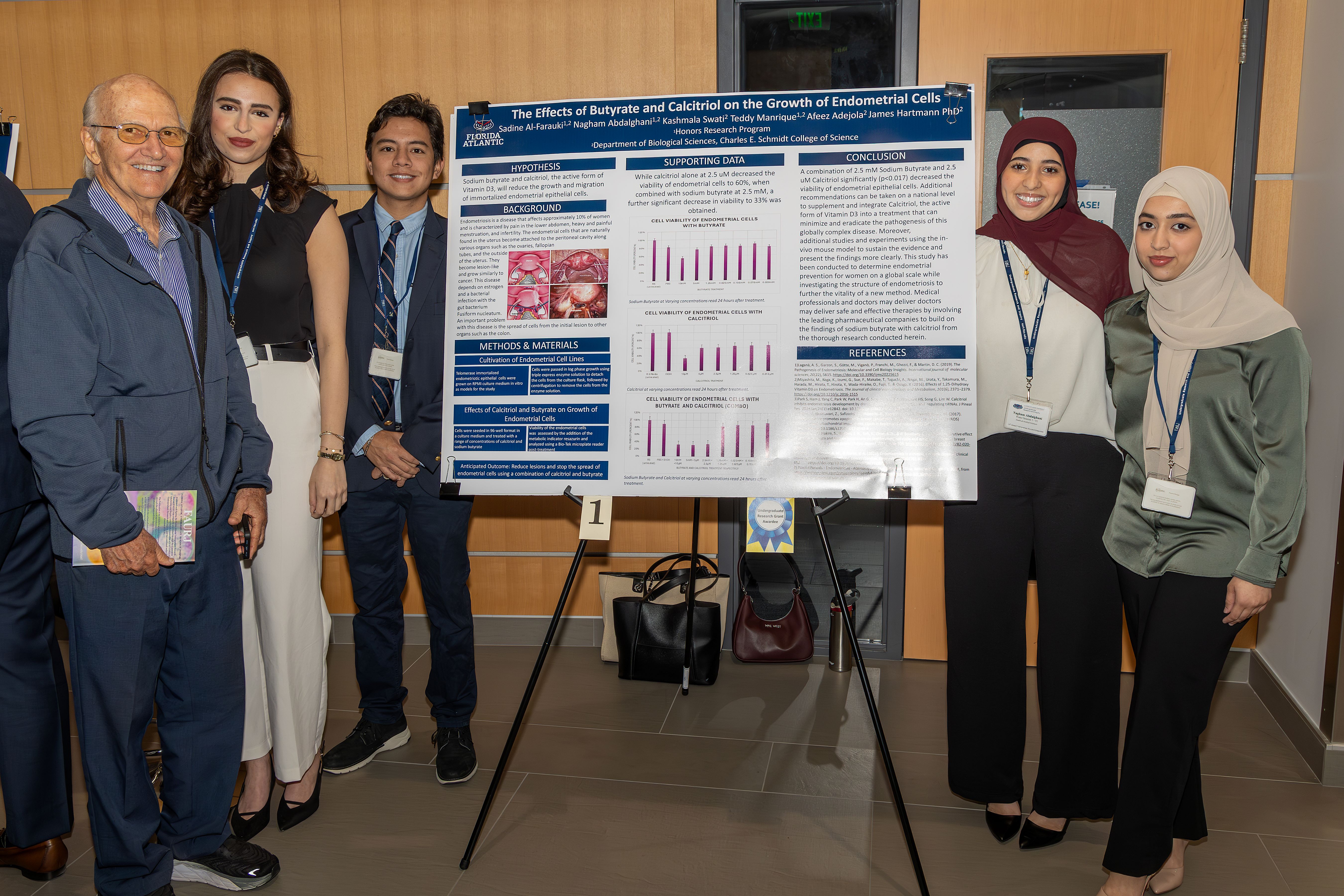Mentorship - Best Practices

FAU’s Office of Undergraduate Research and Inquiry is committed to helping foster healthy and productive mentor and student relationships across campus. Faculty mentors have a unique opportunity to enrich the student experience by sharing their knowledge and experience as their students actively engage in the research process. Students can explore their interests and begin to develop their niche as they prepare to move onto the next stage of their education and careers.
General Tips for Mentoring Student Researchers at FAU
- Have prospective researchers do some preparation for research, such as finding relevant literature, doing a short literature review, or visiting a subject librarian.
- Create clear goals with the student, by week, month, and/or semester.
- Have a check-in system:
- Regularly scheduled meetings afford students the opportunity to report their progress, receive feedback, and seek direction.
- Establishing deadlines keeps students engaged and helps ensure that they progress through the various stages of their research.
According to Students, the Top 5 Best Practices are:
- Make yourself available:
- Take time to explain your research and/or academic scholarship to new undergraduate researchers. Talk to them about their future goals and how research can help them reach those goals.
- Foster Community:
- Balance positive reinforcement and (clearly communicated) negative consequences.
- Ideas for creating community include:
- Research team meetings
- One-on-one meetings
- Attending department seminars as a research group
- Journal clubs
- Social outings
- Be Attentive:
- Help them set timelines and deadlines.
- Try multiple lines of communication, when appropriate.
- Encourage Participation in the Broader Research Community
- Refer them to OURI Peer Mentors to learn more about opportunities
- Encourage them to look into local and national conferences
- Notify them about department or campus events
- Tell them about student groups here at FAU
- Be Understanding
- Undergraduates frequently need longer turn-around times than graduate students
- Realize that undergraduate coursework must remain their priority
- Give constructive feedback
- Be clear about how to improve and give them chances to redeem themselves
Here are some more helpful resources for mentoring:
- Center for the Improvement of Mentored Experiences in Research (CIMER) - Mentor/mentee agreements, mentoring toolkits, and national reports on effective mentorship.
- Five Effective Strategies for Mentoring Undergraduates from the Council on Undergraduate Research
- Perspectives on Undergraduate Research & Mentoring (PURM) is a multidisciplinary journal that includes the processes of undergraduate research and is published by Elon University
- Howard Hughes Medical Institute’s “Entering Mentoring”
- Ten Salient Practices of Undergraduate Research Mentors: A Review of the Literature
- How to Mentor Undergraduate Researchers: A publication of the Council on Undergraduate Research. If any faculty members are interested in obtaining a copy, the OURI office has some for your convenience.